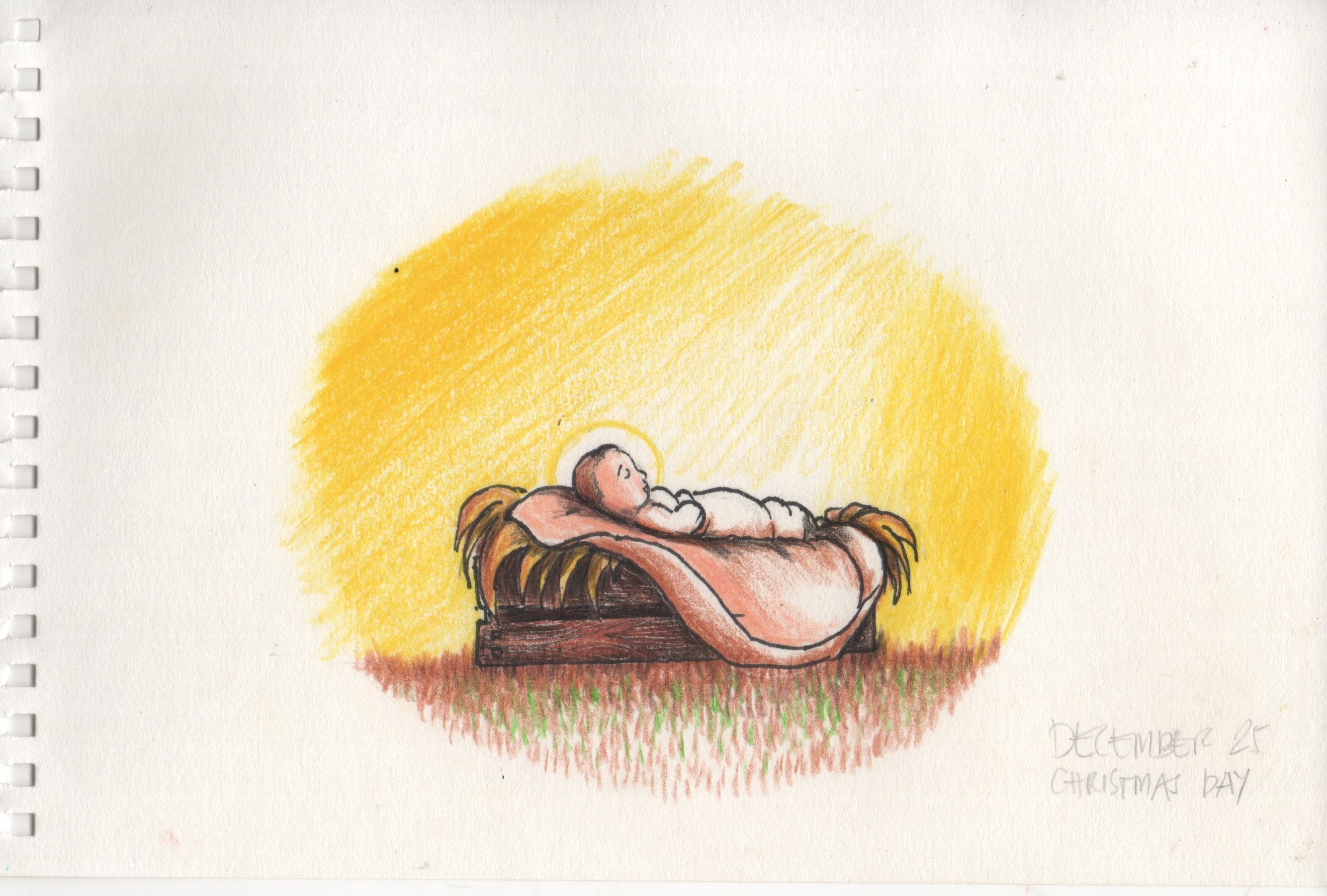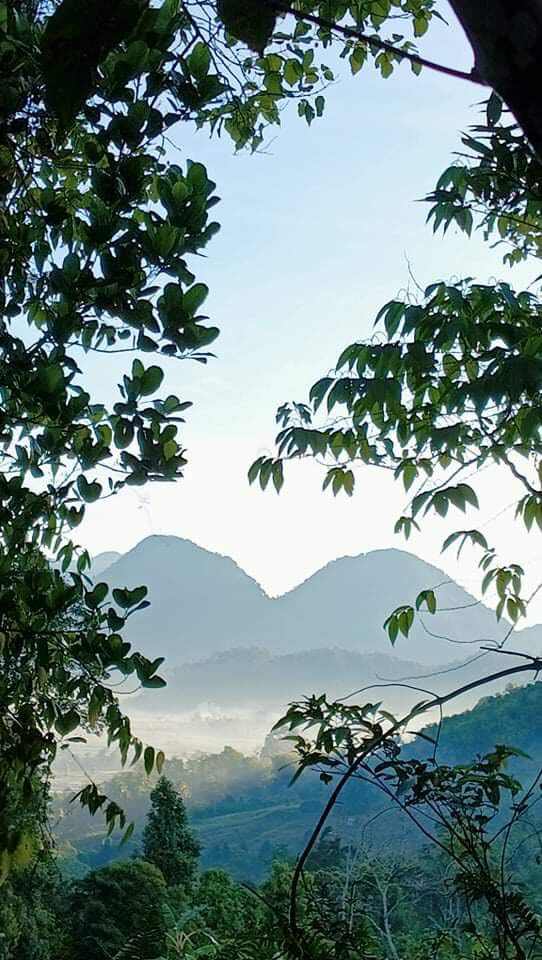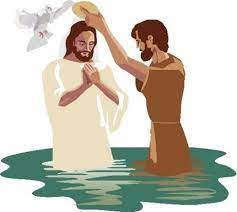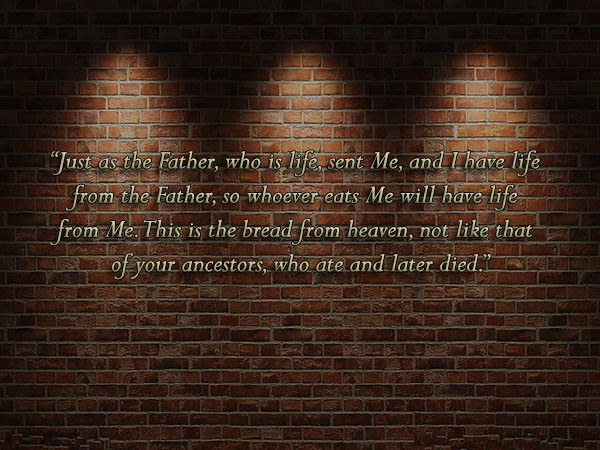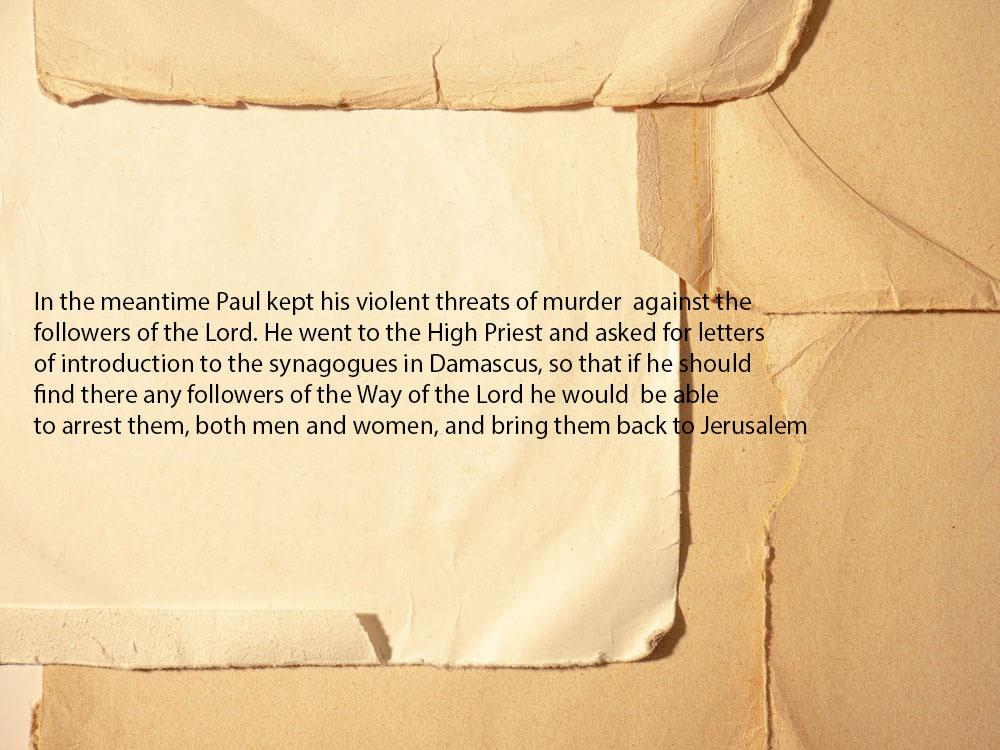“But we have this treasure in earthen vessels, so that the surpassing greatness of the power will be of God and not from ourselves.” (2 Cor. 4:7)
It was a strange night. I was awakened by voices of young men knocking on our doors at past ten in the evening. They were looking for Ruel (not his real name), the youngest brother of the family who mysteriously disappeared that very evening after a drinking session of pangasi wine, a traditional drink of the Subanens. I told them that he was not here and had not come by to visit us since he arrived from the city earlier during the day. Then at midnight, the women of the family came looking for him also as they anxiously joined in the search. Then I wondered how a drunk man can go far if he is no longer capable of even walking straight home. In fact, he had to be accompanied by two other companions so he would not fall down along the dark and stony path.
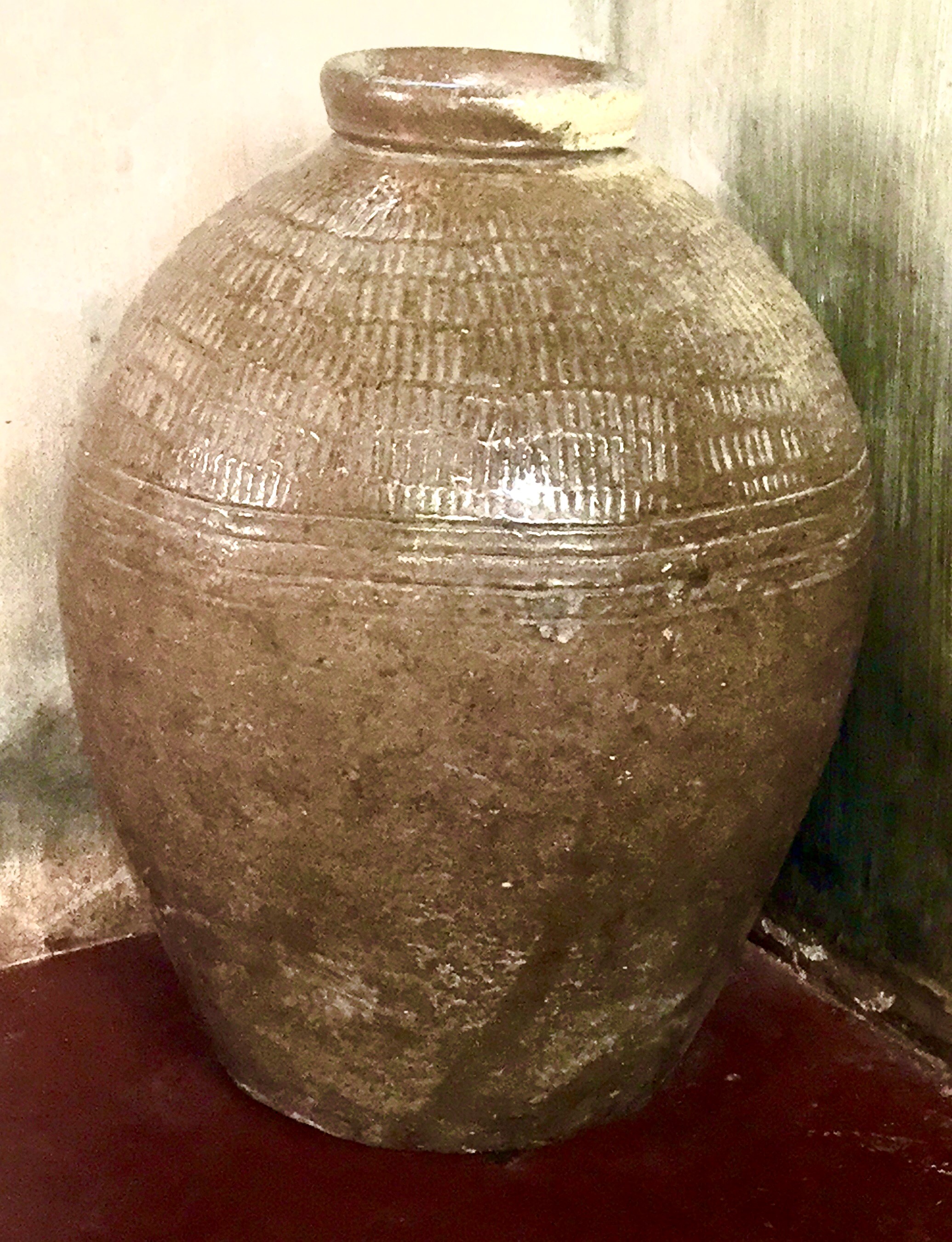
Early at dawn, the search continued for Ruel. This time with more people involved including the barangay tanods of Nanga-Nangan. They searched in every nook and corner of the village, in the open rice fields and in the riversides hoping to find him but there was no trace of him at all. Towards noontime however, there was rejoicing in the village for he was finally seen walking from a distance coming out from the forest area. His face was in a daze, his body dirtied and his back bruised by the prickly branches and thorn bushes found in the thick forest. The people were all aghast as he recounted how he found himself waking up in the middle of the wilderness in the wee hours of dawn without remembering anything at all since the time he fell in deep slumber at the terrace of his brother’s house.
Later on, I learned that at the height of their drinking spree that night, he maliciously touched the tibod that contained the pangasi wine in such a profane way that desecrated the sacredness of the Subanens’ ancestral traditions. The tibod happens to be very old already, hence possessing a high cultural significance for it is associated with the rites and traditions held sacred to their ancestors in a collective manner or in an individual sense of being revered in memory of a particular person. By sacred we understand it to mean objects and places that are venerated, dedicated, consecrated and protected. Thus, it is necessary to show special respect to these objects considered culturally sensitive in order to avoid violating what is held precious and sacred to a particular indigenous community.
This reminded me of those years when I was still engaged with the Indigenous Peoples Apostolate (IPA) in the highlands of Lakewood, Zamboanga del Sur. The timuays (chieftains) of the Subanens would initiate a sacred ritual every time they gather together as a tribe to celebrate important events. We were always in a hushed silence as we listened to their chants and prayers to Magbabaya God thanking Him for the blessings received as a people such as a good harvest and in a special way, for granting to them their ancestral domain after so many years of struggling for their rights. At the same time, they would invoke the Spirit for guidance and protection in all their endeavors. They would then take turns in sipping the pangasi wine from a bamboo straw straight from the tibod until everyone present in the circle have drank from the same jar. I cannot but remain in silent awe by the holy reverence in carrying out their ancestral rites and traditions.
And so, whatever happened to Ruel that strange night must have angered the spirits of the dead ancestors who retaliated by dragging him in a dreamlike state into the heart of the forest to teach him a lesson. The worst could have happened but the fervent prayers and supplications of the family were probably heard by them, thus assuaging their vengeful act leaving him alive in the wilderness. The tibod can be likened to a New Zealand Maori cloak that may still possess the mana or personal power of its owner and can be helpful or harmful to the person who comes in contact with the particular object. Respecting cultural protocols is hence so important for the people to bear in mind, even though there is no obligation to believe in them but only asks to respect those who do.

August 9 is the International Day of the World’s Indigenous Peoples. On a global scale, there are about 370 million Indigenous Peoples and ethnic minorities living in more than 90 countries worldwide.[1] Here in Mindanao, these existing non-Muslim indigenous groups are collectively known as the “Lumad” which is actually a Cebuano term for native or indigenous. The Lumad tribes are composed of thirteen ethnic groups which are the following: Blaan, Higaonon, Bukidnon, Mamanwa, Mandaya, Manobo, Mansaka, Sangir, Subanen, Tagabawa, Tagakaulo, Tasaday and T’boli. The Subanens are those particularly living here in the mountainous areas of Zamboanga Peninsula and the interiors of Misamis Occidental. Accordingly, the name Subanen means a “person or people of the river” or “river dwellers” as derived from the word “suba” which means river in Cebuano. [2]
And so, no matter where we live or who we are, we should all care and remember our Indigenous brothers and sisters. Here are three main reasons why:
First, it is because Indigenous Peoples and ethnic minorities are more likely to be poor. For even though they make up only 5% of the global population, they account for 15% of the world’s extreme poor. Because of the onslaught of globalization and the impact of climate change, many of the indigenous peoples especially the young generations are forced to flee from poverty and in the process of migrating, find themselves uprooted from their ancestral lands, from their origins and experience alienation and rejection from mainstream society. This also results to abandonment of their families in their homeland where children and the elderly becoming the most vulnerable members like the little girl Carmela who is very ill. She and her brother CJ are now under the care of their aging grandmother in the absence of both parents.
Second, while there have been advances in our postmodern world, the indigenous peoples and ethnic minorities continue to face exclusion and marginalization and lack equal access to basic services. From India to Peru, indigenous women are less likely to use healthcare facilities for childbirth because of discrimination, mistreatment and a lack of respect for cultural practices. Hence, Indigenous People’s life expectancy is up to 20 years lower than the life expectancy of non-indigenous peoples worldwide.[3]
In Central America especially in Nicaragua, the Citizen Watch laments the vulnerability encountered by indigenous communities particularly towards the North and South Caribe in the face of the global pandemic. For instance, in the indigenous community of Karawala where the sad reality of malnutrition and lack of access to public health services already prevails, and is further aggravating their susceptibility towards being contaminated by the Coronavirus-19. Moreover, the people have also denounced the National Police for impeding the delivery of donations to their community.[4]
Lastly, Indigenous Peoples help protect our environment, protect Climate Change and build resilience to natural disasters.yet their rights aren’t always protected. While indigenous peoples own, occupy or use a quarter of the world’s surface area, they safeguard 80% of the world’s remaining biodiversity. Over 20% of the world’s tropical forest carbon is stored in Indigenous People’s territories in the Amazon Basin, Mesoamerica, the DRC and Indonesia. However, only a fraction of indigenous lands are recognized by states. In the year 2017, the UN Declaration on the Rights of Indigenous Peoples marked it’s 10th Anniversary.
Furthermore, Pope Francis in the Fourth Global Meeting of the Indigenous Peoples Forum held in Rome last February 2019 gave the following remark: “The indigenous peoples are a cry of hope. They remind us that human beings have a shared responsibility in the care of our common home. The earth suffers and the indigenous peoples know of the dialogue with the earth. They know what it means to listen to the earth, to see the earth, to touch the earth. They know the art of living well in harmony with the earth.” [5]

As the Catholic Church finds itself more than halfway through it’s celebration of the Year of Ecumenism, Inter-religious Dialogue and Indigenous Peoples with the theme, Dialogue towards Harmony, may we the faithful seize every opportunity to foster a culture of encounter and solidarity with peoples from all walks of life given the present circumstances we find ourselves in. This entails a dialogue of life where there is an atmosphere of openness, true listening to one another, mutual support and empathy as we share one another’s joys and pains, hopes and struggles to rise above the difficulties and challenges we are going through because of the ongoing COVID-19 global pandemic. For at stake are the primordial values of peace and harmony where there is so much fear, hatred and division causing war and armed conflict as well racial discrimination and prejudices happening all over the world.
Furthermore, Laudato Sí’s call to dialogue with indigenous peoples is also in line with it’s urgent call to address our ecological crisis now more than ever before because all are connected. There is therefore a need for us to pay special attention to these people who are often forgotten and left without the prospect of a serene future and to seek new pathways in our evangelizing mission. This brings me back to the Subanen’s sacred vessel, the tibod, so fragile and vulnerable as time goes by and yet it holds humanity’s treasure that needs all the care, protection and respect it deserves. We must therefore heed the call of the times, that is, in the words of Cardinal Claudio Hummes, a Church with an indigenous countenance…”a Church that expresses fully the faith in her own culture, in her own identity.”[6]
“Surely you know that you are God’s temple and that God’s Spirit lives in you! So if anyone destroys God’s temple, God will destroy him. For God’s temple is holy, and you yourselves are his temple.” (1 Corinthians 3:16-17) May the Lord Jesus be the living treasure in us, His earthen vessels so that His glorious light may shine through us despite our brokenness and limitations. And in so doing, Jesus’ prayer that all may be one (Jn. 17:21) shall be fulfilled in our here and now.
PRAYER FOR THE YEAR OF ECUMENISM,
INTER-RELIGIOUS DIALOGUE AND INDIGENOUS PEOPLES
Almighty, Ever-living God,
the most Merciful and Compassionate,
we thank You for Creation and the life You have given us.
Together, we people of diverse religions,
spiritual expressions and indigenous traditions
who invoke You by different names,
humbly pray that You give us the opportunity
to encounter each other through Dialogue,
to reach mutual respect and reciprocal acceptance of each other,
and to break down the walls of division
that stand at the center of most misunderstanding and conflicts.
Make us instruments of Your light, Your Love and Your Peace.
Guide us to walk always in Your Path
and be a source of hope to everyone
so that we may discover Your Divine Light
as we encounter each other.
Show us the way to Harmony and Unity
to reach the fullness of human fraternity.
Give us the wisdom to discern the Truth
and to freely choose what is right and just
to make this world a better place to live in.
Together, we ask You for the wisdom and the courage
to fulfill Your Will that all may be ONE.
AMEN.
Sr. Marjorie J. Guingona, SAC
Nanga-Nangan, Tigbao,
Zamboanga del Sur, 7043
August 6, 2020
Feast of the Transfiguration of Our Lord
[1] E.Vásquez, M. Gill & Duchichela, Three Reasons why we should all care for Indigenous Peoples, 8/9/2017, blogs.worldbank.org.
[2] Subanon people, en.m.wikipedia.org
[3] E.Vásquez, M. Gill & Duchichela, Three Reasons why we should all care for Indigenous Peoples, pp. 2-3
[4] Confidencial, Emergencia Coronavirus, July 2020
[5] Seminar on “Indigenous Peoples, custodians of nature: Pope Francis’ encyclical Laudato Sí and Sustainable Development goals”, 29-03-2019, press.vatican.va
[6] Ibid. p. 3


